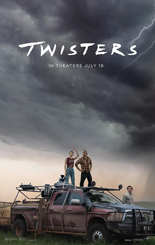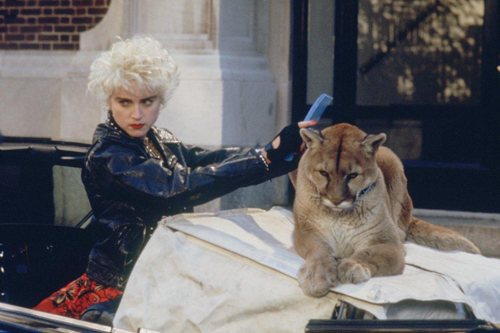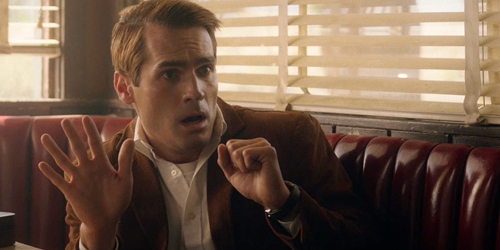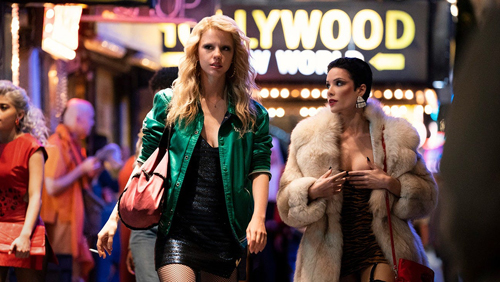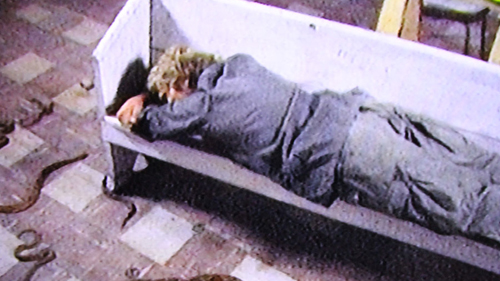
More remake than reboot, Twisters follows the story of 1996’s original Twister beat for beat. To reflect the changing times, it adds drones, influencers and merch. Instead of merely launching those silver data-capturing balls into a tornado, these Oklahoma storm chasers shoot fireworks up its hole and, with any luck, barrels of absorbent-diaper chemicals in hopes of shrinking it.
Filling the void vacated by Helen Hunt and Bill Paxton are, respectively, the British Daisy Edgar-Jones (2002’s Fresh) and the Texan Glen Powell (Top Gun: Maverick). She’s a headstrong meteorology expert with a preternatural sense for anticipating the weather; he’s a hotheaded YouTuber in a pickup truck whose shock absorbers probably get replaced as often as the gasoline. Will the two be able to set aside their differences, survive the suck zone and find love? Only one hour and 57 minutes know for sure.
Actually, that’s not true; everybody knows, sight unseen. And that’s fine. No one will see Twisters expecting complicated and unforeseen plot machinations — starting, apparently, with screenwriter Mark L. Smith (2015’s The Revenant), who resolves two points of non-tornadic conflict between Edgar-Jones and Powell and third wheel Anthony Ramos (Transformers: Rise of the Beasts) with a sentence apiece.
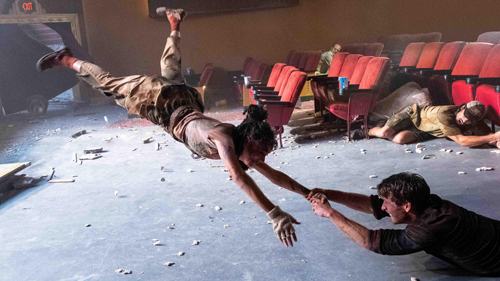
And that’s fine, too, because what we want from Twisters are said twisters, right? Well … although we get them, they swoop down in sloppily staged and edited set pieces. As cheesy as the OG Twister was, its cyclone sequences felt propulsive, viewers were spatially aware at all times and the shots cut together well. Here, in a big leap to blockbusters coming off the excellent, Oscar-winning indie Minari, director Lee Isaac Chung seems out of his element. Oklahoma’s waving wheat sure looks sweet with Chung’s eye for landscapes, and he certainly brings more humanity to this sequel, but at the sacrifice of action.
I equally miss Michael Crichton’s pop-science sensibilities, if only to make the clunkiest of weathersplaining dialogue exchanges swallowable. Edgar-Jones appears particularly at unease with such material, as if she’s better than it — which she is. While I’m not yet aboard Powell’s populist brand of aw-shucksness as the rest of our nation, he knows how to modulate it to fit the vibe.
Intended or not, when the F5 bursts through the screen of a movie theater in the climax, it’s hard not to read it as Chung’s subversive metaphor for the death of cinema. Twisters isn’t the nadir of modern studio-tentpole IP, but it qualifies as a disappointing follow-up — and to a movie that, being decent at best, had set a low bar. Warner Bros.’ low-rent Into the Storm (which I’m convinced comes from a rejected Twister 2 pitch) entertained me more than Twisters, and that 2014 movie is so bad, my sisters-in-law remain irate with me to this day for playing it. —Rod Lott

